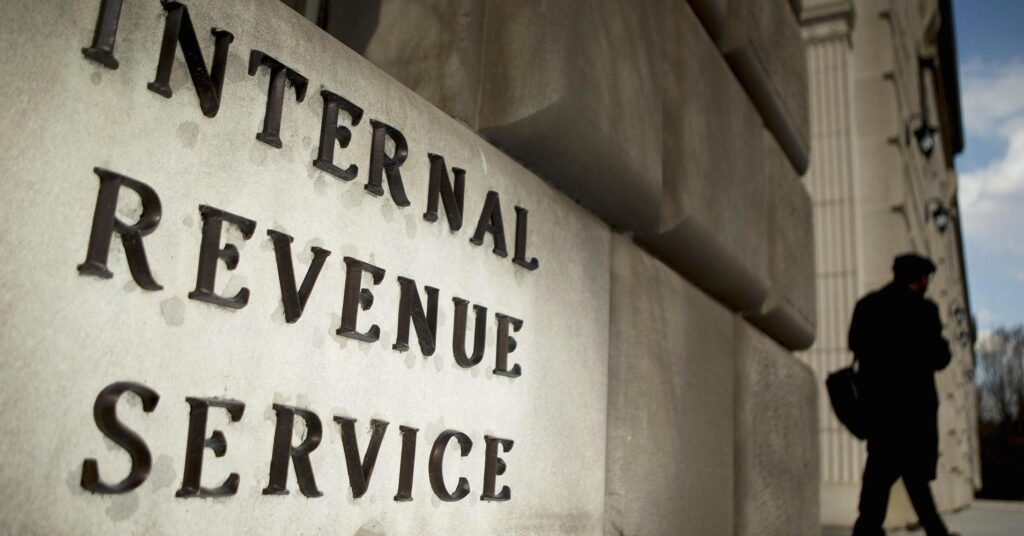Elon Musk, the CEO of the social media company X (formerly known as Twitter), has declared that the company will financially support users who face mistreatment from their employers due to their engagement with or content posted on the platform.
In a recent thread on X, Musk announced this initiative on August 5, promising to fund legal bills regardless of the scale of the lawsuits.
The announcement garnered significant support, amassing over 200,000 likes and prompting numerous users to express their interest in receiving funding for potential legal actions against their employers.
One such case was brought to the spotlight by The Libs of TikTok, which highlighted the situation of Kara Lynne, an employee of Limited Run Games, allegedly fired for following an account on X.
Musk personally responded to the post and inquired about the accuracy of the situation, to which Lynne confirmed that the headline was slightly oversimplified but essentially accurate.
This move by Musk reflects his self-proclaimed stance as a “free speech absolutist” and his disdain for cancel culture.
He has consistently advocated for reducing content censorship, especially concerning political and ideological views, on the X platform.
READ MORE: JPEG’d DeFi Protocol Recovers $10 Million in Stolen Crypto After Hacker Returns Funds
In December 2022, he tweeted that “cancel culture needs to be canceled,” and since taking ownership, X has reinstated several accounts that were previously banned for policy violations.
The recent announcement is part of ongoing changes at X, which underwent a complete rebranding from Twitter to X in July as part of its transformation into an “everything app.”
The platform has also introduced a revenue-sharing model for its users and, on August 2, rolled out an option for premium Blue service subscribers to hide their verified checkmarks.
Elon Musk’s commitment to supporting users facing employer mistreatment due to their activity on X showcases his dedication to promoting free expression and countering cancel culture.
As the company continues to evolve and expand its services, users are eagerly embracing the changes and participating in the ongoing transformation of the platform.
Other Stories:
Bitcoin’s Hodl Strategy Outperforms Crypto Funds by 68.8% in H1 2023
Elon Musk Puts Rumors to Rest: X Has No Plans to Launch Crypto Tokens
Chamber of Digital Commerce Publishes Impactful Analysis on SEC’s Ripple Lawsuit
According to the 2023 “Financial Stability Report” by Latvijas Banka, the number of individuals purchasing crypto assets in Latvia has witnessed a decline.
The central bank attributes this drop in interest to various factors, including negative sentiment stemming from fraud and insolvency issues among major players in the market, unwise investment decisions that have been made previously, and the association of cryptocurrencies with money laundering.
Furthermore, the report points out the increasing involvement of crypto-asset companies with supervised financial sector participants, which has added to the waning interest in cryptocurrencies.
Based on data from payment card usage, the report reveals that in February 2023, only 4% of the population had bought crypto assets, compared to 8% in the previous year.
It is important to note that Latvia has a total population of 1.84 million people.
The report also sheds light on the declining transfer of funds to crypto wallets from Latvia. In 2022, Latvians transferred 51.8 million euros ($57 million) to crypto wallets, but this figure dwindled to 10.7 million euros ($11.8 million) in the first quarter of 2023.
Most of these transactions were directed towards companies based in other European countries, particularly in those countries where the fintech ecosystem, including crypto technologies, is flourishing. Notable examples include Lithuania, Estonia, Malta, and Ireland.
READ MORE: Binance-Backed Solv Protocol Raises $6M in New Funding
The report contrasts Latvia’s crypto adoption ranking with that of its neighboring country, Lithuania. According to the “2022 Geography of Cryptocurrency Report” by Chainalysis, Latvia was ranked 92nd out of 148 countries in terms of crypto adoption, while Lithuania secured the 102nd spot.
The Latvian central bank acknowledges that its nonbank financial sector is relatively less significant compared to other European countries.
This is mainly attributed to the population’s lower level of long-term savings, which have accumulated over a shorter period compared to many other euro area nations.
Despite the declining interest in crypto assets for investment purposes, the report highlights that retail crypto payments continue to dominate in Latvia.
However, these payments are typically small in size, with 44% of retail payments worth 60 euros ($66) or less, and 97.5% valued at under 1,000 euros ($1,100).
However, the specific monetary value of these transactions was not provided in the report.
Other Stories:
Bitcoin to Breach $100,000 by 2024 Amidst Mining Industry Challenges
Adam DeVine Joins Forces with Bitget in Year-Long Crypto Ad Partnership
Gulf Nation Nears Implementation of Virtual Asset Regulations
Coinbase CEO Brian Armstrong has expressed a mixed response regarding the company’s plans amid regulatory uncertainty in the United States.
Despite facing a lawsuit from the U.S. Securities and Exchange Commission (SEC) and scrutiny from state regulators over its staking services, Armstrong stated on August 4 that Coinbase is “staying in the United States.”
He emphasized that leaving the country is currently “not even in the realm of possibility” and that there is no emergency plan in place for such a move.
However, this stance contrasts with Armstrong’s comments at a fintech event in London in April, where he mentioned the possibility of relocating Coinbase’s headquarters to a more crypto-friendly country due to the lack of regulatory clarity in the U.S. market.
Nonetheless, he later assured shareholders that Coinbase remains “100% committed” to the U.S. market in the long term.
The SEC filed a lawsuit against Coinbase on June 6, accusing the exchange of offering unregistered securities, following a Wells notice issued by the regulator approximately three months prior.
READ MORE: Bitcoin to Breach $100,000 by 2024 Amidst Mining Industry Challenges
On August 4, Coinbase’s legal team filed a motion to dismiss the lawsuit, alleging that the commission had violated due process, abused its discretion, and deviated from its own previous interpretations of securities laws.
The outcome of the SEC’s case against Coinbase could have significant implications for other cryptocurrency firms operating in the United States.
Notably, in a separate lawsuit against Ripple, a federal judge ruled in July that XRP was largely not considered a security by SEC standards.
This ruling has already been cited by lawmakers and lawyers, including Coinbase’s chief legal officer Paul Grewal, in defense of crypto companies.
As the regulatory landscape continues to evolve, Coinbase remains firm in its commitment to the U.S. market, but the ongoing legal battle and uncertainty may influence its long-term decisions regarding its presence in the country.
The cryptocurrency industry is closely watching this case, as it could set important precedents for future regulatory actions in the rapidly expanding digital asset space.
Other Stories:
Adam DeVine Joins Forces with Bitget in Year-Long Crypto Ad Partnership
Binance-Backed Solv Protocol Raises $6M in New Funding
Gulf Nation Nears Implementation of Virtual Asset Regulations
Cryptocurrency exchange Coinbase, headquartered in the U.S., has submitted a motion to dismiss a lawsuit initiated by the Securities and Exchange Commission (SEC).
The SEC brought the lawsuit against Coinbase in June, approximately three months after the company received a Wells notice from the regulatory body.
In a legal document filed on August 4 with the U.S. District Court for the Southern District of New York, Coinbase’s attorneys argue that the SEC has overstepped its authority, abused its discretion, and misinterpreted securities laws in exercising certain regulatory oversight over the exchange.
They referenced the SEC v. Ripple case, pointing out that a judge had determined that XRP did not predominantly meet the definition of a security as per the commission’s existing standards.
In the lawsuit, the SEC has alleged that 12 tokens in question meet the criteria of “investment contracts” under the Howey test and therefore Coinbase has been operating as an unregistered broker.
Coinbase disputes this assertion, maintaining that the SEC’s challenges regarding its staking program lack legal standing.
READ MORE: Binance-Backed Solv Protocol Raises $6M in New Funding
The firm requested the court to dismiss the case, alleging that the SEC’s action was “punitive” and overstepped the regulatory powers given to it by Congress.
Coinbase announced its decision to file the motion to dismiss during an earnings call on August 3. The company continues to refute the SEC’s accusations that it could have violated securities laws through its activities.
Coinbase is not alone in facing SEC scrutiny. The regulator is also pursuing enforcement actions against Binance and Hex founder Richard Heart.
Recently, U.S. legislators have pushed legislation through committees that might reform the SEC’s authority over digital assets, should it become law.
Other Stories:
Gulf Nation Nears Implementation of Virtual Asset Regulations
Adam DeVine Joins Forces with Bitget in Year-Long Crypto Ad Partnership
Bitcoin to Breach $100,000 by 2024 Amidst Mining Industry Challenges
American actor and comedian, Adam DeVine, has joined forces with crypto exchange Bitget in a year-long advertisement partnership.
The new campaign, titled “Crypto & Beach Houses,” features DeVine holding a smartphone while discussing internet phenomena, with prominent Bitget branding in the background.
In the video, DeVine humorously encourages viewers to trade crypto at any time and from anywhere, even from the comfort of their race car beds at 2:00 am, declaring that traditional business hours are a thing of the past.
Known for his roles in the comedy TV series Workaholics and the Pitch Perfect film franchise, DeVine’s presence aims to attract more attention to the cryptocurrency platform.
However, it’s important to note that DeVine’s appearance in the ad comes with a disclaimer stating that he is a paid actor and his views should not be considered as specific recommendations or financial advice.
Furthermore, he is not licensed as an investment advisor or broker-dealer in any jurisdiction.
Additionally, the ad is not intended for distribution in the United States or to any U.S. person, which suggests that the campaign is targeted toward international audiences.
This partnership between celebrities and crypto companies has been a trend in the industry, with varying degrees of success.
READ MORE: Goldman Sachs Economists Predict AI to Surpass Electricity and PCs in Financial Impact on US Economy
Some prominent figures, like Lindsay Lohan, YouTuber Jake Paul, and singer Akon, have faced legal action from the U.S. Securities and Exchange Commission for allegedly promoting crypto tokens without proper disclosures.
In the past, Hollywood icon Matt Damon was mocked for his appearance in Crypto.com’s advertisement that coincided with the start of the cryptocurrency bear market.
Meanwhile, football stars Cristiano Ronaldo and Lionel Messi have also ventured into the crypto space.
Ronaldo signed a multi-year non-fungible token partnership with Binance, while Messi currently serves as the brand ambassador for Bitget, the same company with which DeVine is now partnering.
As the crypto market continues to evolve, partnerships with celebrities can help raise awareness and interest in digital assets.
However, it’s crucial for both companies and celebrities to be transparent about their relationships and avoid making misleading claims.
Investors should always conduct thorough research and seek advice from licensed professionals before making financial decisions in the crypto space.
Other Stories:
ASIC Sues eToro Over Alleged Insufficient Screening Tests
Aave, the governance token of the decentralized finance (DeFi) Aave protocol, witnessed a 17% decline between July 30 and August 1, reaching $62.
Although the $62 support level proved resilient, the current price of $64.40 remains 12% below the July 30 daily close, leading investors to question whether this indicates a cautious approach to the sector or if other factors are at play.
One contributing factor to the recent movement in the AAVE token can be attributed to the risks of cascading liquidations on DeFi protocols stemming from the Curve Finance pool exploit that began on July 30.
However, Aave’s decentralized liquidity protocol has previously withstood similar scenarios, and it currently holds a substantial $295.6 million in its Safety Module, which provides added security.
A concerning element affecting AAVE’s token performance is the stablecoin GHO, which has been trading below the $1 peg since its launch on July 16.
The lack of DeFi integration and farming opportunities for GHO discourages its holders, leading to selling pressure and depegging on decentralized exchanges.
Despite these challenges, the Aave protocol maintains an impressive $5.1 billion in total value locked (TVL) across six chains.
Nevertheless, it experienced a 12.5% decline in TVL within just one week, whereas Uniswap’s and Compound’s TVL remained relatively stable.
While Aave’s annualized revenue of $12 million lags behind some competitors, such as Convex Finance with $52 million and Radiant with $20 million, proponents argue that Aave’s higher fees may create potential for future revenue growth.
READ MORE: U.S. Judge Denies Motion to Dismiss SEC Lawsuit Against Terraform Labs
Recent events may have influenced investors’ views on Aave. In May 2023, the older version of the Aave protocol (v2) encountered a bug that temporarily hindered withdrawals on the Polygon Network implementation. The issue was quickly resolved without any reported losses.
Additionally, a contentious event occurred on June 12 when a proposal sought to prevent a specific account, owned by Curve founder Michael Egorov, from accumulating further debt.
This sparked debates about censorship resistance in DeFi.
Despite the recent decline in the AAVE token price and TVL, Aave’s decentralized application remains a strong contender in the DeFi space.
With a robust insurance fund and protocol fees, Aave is well-prepared to weather market fluctuations and potential risks.
The protocol’s solid foundation and significant TVL signal its resilience and potential for continued success.
Other Stories:
Binance CEO CZ Unveils Plan to Launch Smaller Algorithmic Stablecoins
Decentralized Exchange on Coinbase’s Base Network Pauses Trading Amidst Concerns of Exploit
IRS Issues New Ruling: U.S. Crypto Investors Must Report Staking Rewards as Gross Income
Google and Accenture, who operate a joint business venture, are facing allegations of violating federal labor laws in the United States, as reported by Bloomberg.
The Alphabet Workers Union lodged a complaint with the U.S. National Labor Relations Board on August 3, asserting that Alphabet Inc. acted in contravention of the law that prohibits retaliation against employees for organizing.
The union alleges that Alphabet terminated the contract employment of a significant number of Google Help workers who were in the process of unionizing.
This affected over 70% of the “proposed bargaining unit,” which included 118 writers, graphic designers, and launch coordinators responsible for generating content for Google both internally and externally.
Notably, workers handling Google search engine optimization and AI chatbot responsibilities were employed through Accenture.
One affected worker, Anjail Muhammad, a writer with Accenture, described the job loss as “retaliatory.”
The timing of these job cuts raised suspicions, prompting the union to file an unfair labor practice charge against Google and Accenture. The union aims to hold the companies accountable for their actions.
In response, Google maintained that organizing matters were solely between the workers and their employer, Accenture, adding that it did not control the terms and conditions of their employment.
READ MORE: Goldman Sachs Economists Predict AI to Surpass Electricity and PCs in Financial Impact on US Economy
Despite the complaint, Google stood by its previous statement and reiterated that the changes in employment contracts were driven by cost-saving measures and efforts to improve efficiency.
Earlier in the year, on January 20, Google had reportedly laid off 12,000 employees. It’s worth noting that several tech and crypto companies also conducted large-scale layoffs around the same time.
In April, Google underwent restructuring within its AI research and development unit, Deepmind.
Furthermore, Google has been embroiled in legal disputes, including a class-action lawsuit filed on July 12 concerning its recently introduced AI data scraping privacy policy.
The allegations from the Alphabet Workers Union highlight the growing concerns about labor practices within major technology companies.
As the case progresses, it may prompt further scrutiny of Google and Accenture’s business practices in relation to their employees’ rights and organizing activities.
Other Stories:
ASIC Sues eToro Over Alleged Insufficient Screening Tests
According to economists at Goldman Sachs, artificial intelligence (AI) is poised to make a greater financial impact on the American economy than even electricity and personal computers did.
In their investment report released on August 1, Goldman Sachs economists Joseph Briggs and Devesh Kodnani projected that AI could attract up to $200 billion in global investments by 2025, with approximately half of that investment occurring in the United States.
This surge in AI investment is expected to contribute significantly to the country’s gross domestic product (GDP).
While previous technological booms associated with the introduction of electricity and PCs saw a 2% growth in GDP, the economists estimated that AI could be responsible for up to 4% of GDP growth in the United States and 2.5% in other nations that are already heavily investing in AI technologies.
Goldman Sachs attributed a significant portion of these anticipated gains to the rapid advancements being made in generative AI.
Generative AI, which includes technologies like OpenAI’s chatbot ChatGPT, image creation software Midourney, and text-to-speech generator Eleven Labs, is expected to have enormous economic potential.
The economists predicted that generative AI could boost global labor productivity by over 1 percentage point annually in the decade following widespread adoption.
However, while generative AI offers promising productivity benefits, businesses will need to make substantial upfront investments in physical, digital, and human capital to acquire and implement these new technologies and transform their business processes.
Goldman Sachs also highlighted the increasing prevalence of AI adoption among companies, with 16% of Russell 3000 companies mentioning AI in their earnings calls.
READ MORE: IRS Issues New Ruling: U.S. Crypto Investors Must Report Staking Rewards as Gross Income
This figure represents a significant increase from less than 1% in 2016, indicating that America is taking the lead in AI innovation.
The economists believe that American companies are likely to be early adopters due to the country’s position as a market leader in AI technology.
Regarding the timing of the AI investment cycle, it remains challenging to predict precisely. However, based on current business surveys, the economists suggest that AI will start to have its most significant investment impact after 2025.
In conclusion, economists at Goldman Sachs are optimistic about the financial potential of AI in the American economy.
They project that AI investments could be substantial, leading to substantial GDP growth and improved productivity in various sectors.
Although the transformation brought about by AI will require significant upfront investments from businesses, the potential benefits are expected to be substantial and could drive the American economy to new heights.
Other Stories:
U.S. Judge Denies Motion to Dismiss SEC Lawsuit Against Terraform Labs
Binance CEO CZ Unveils Plan to Launch Smaller Algorithmic Stablecoins
Decentralized Exchange on Coinbase’s Base Network Pauses Trading Amidst Concerns of Exploit
U.S. Senators Elizabeth Warren, Bernie Sanders, Bob Casey, and Richard Blumenthal have sent a letter to the Internal Revenue Service (IRS) and the Treasury, urging them to take swift action in closing tax loopholes that are being exploited by “crypto tax evaders.”
The lawmakers emphasized that failure to act promptly could result in a “crypto tax gap” of $50 billion, leading to a potential loss of $1.5 billion in tax revenue for the 2024 financial year if tax policy updates are delayed.
The senators’ concerns stem from the tax laws outlined in the Senate’s $1.2 trillion infrastructure bill, which was passed in August 2021.
The bill aimed to increase tax reporting requirements for businesses operating as crypto brokers. Despite the bill being signed into law, the Treasury and IRS have yet to release their new tax rules.
The deadline for their implementation is December 31, and the senators are calling for an expedited process.
Elizabeth Warren has been a vocal critic of the cryptocurrency industry in the United States and even made it a central focus of her Senate re-election campaign, forming an “anti-crypto army.”
Bernie Sanders, though less vocal about crypto, has co-signed letters with Warren seeking tighter restrictions on the space.
READ MORE: IRS Issues New Ruling: U.S. Crypto Investors Must Report Staking Rewards as Gross Income
A recent poll commissioned by Grayscale Investments revealed that 59% of Democrats and 51% of Republicans view cryptocurrencies as the future of finance, suggesting that Warren’s anti-crypto stance might not resonate with the majority of the population.
The senators’ letter serves as a reminder of the growing concern among lawmakers about potential tax evasion facilitated by cryptocurrencies.
They stress the importance of implementing robust regulations promptly to prevent tax evaders and intermediaries from exploiting the system and diverting billions of dollars annually from the U.S. government.
With the clock ticking and the deadline approaching, the lawmakers are pushing for the IRS and Treasury to take action immediately to address the crypto tax gap and ensure a fair and transparent tax system for all citizens.
Whether the agencies will act promptly in response to the senators’ letter remains to be seen, but the call for regulatory clarity in the crypto space continues to gain momentum.
Other Stories:
U.S. Judge Denies Motion to Dismiss SEC Lawsuit Against Terraform Labs
Binance CEO CZ Unveils Plan to Launch Smaller Algorithmic Stablecoins
Decentralized Exchange on Coinbase’s Base Network Pauses Trading Amidst Concerns of Exploit
BlockFi, the cryptocurrency lender undergoing reorganization, has taken a significant step forward as the United States Bankruptcy Court for the District of New Jersey conditionally approved its disclosure statement.
The company released a joint statement with the Official Committee of Unsecured Creditors on August 2, 2023, urging all eligible parties to vote in favor of the plan before the September 11 voting deadline.
This approval is crucial as it will lead to the resolution of the Chapter 11 cases and the eventual return of client funds.
Once the bankruptcy plan obtains the necessary approval, BlockFi aims to focus on recovering funds from various defunct firms, including Alameda Research, FTX, Three Arrows Capital, Emergent, Marex, and Core Scientific.
The primary objective is to optimize the recovery of client funds while also countering potential claims by third parties that could dilute client assets.
The plan offers clients the option for releases if they don’t opt out of a voluntary third-party release.
This release would exempt them from any claims and causes of action that BlockFi might have against them.
However, this release does not apply to clients who withdrew $250,000 or more from BlockFi Interest Accounts (BIA) or BlockFi Private Client (BPC) Accounts on or after November 2, 2022.
Additionally, the plan stipulates that BlockFi will not reclaim amounts under $250,000 that clients properly transferred from BIAs or BPCs to BlockFi Wallet and subsequently withdrew from Wallet before the platform’s pause on November 10, 2022.
READ MORE: Decentralized Exchange on Coinbase’s Base Network Pauses Trading Amidst Concerns of Exploit
Furthermore, clients with claims under $3,000 or those who choose to reduce their claim to $3,000 will be part of the convenience claim class and receive a one-time cash distribution from the BlockFi estate equal to 50% of their claim.
In another development, the United States Securities and Exchange Commission (SEC) has agreed to postpone the collection of a $30 million fine from BlockFi until creditors are fully repaid.
This fine constitutes the remaining balance of a $50 million settlement reached with the regulator in February 2022.
With the conditional approval of the disclosure statement, BlockFi is inching closer to resolving its bankruptcy cases and ensuring the return of funds to its clients.
The company urges all eligible parties to vote in favor of the plan before the voting deadline to move forward with the reorganization process successfully.
Other Stories:
Binance CEO CZ Unveils Plan to Launch Smaller Algorithmic Stablecoins
U.S. Judge Denies Motion to Dismiss SEC Lawsuit Against Terraform Labs
IRS Issues New Ruling: U.S. Crypto Investors Must Report Staking Rewards as Gross Income











